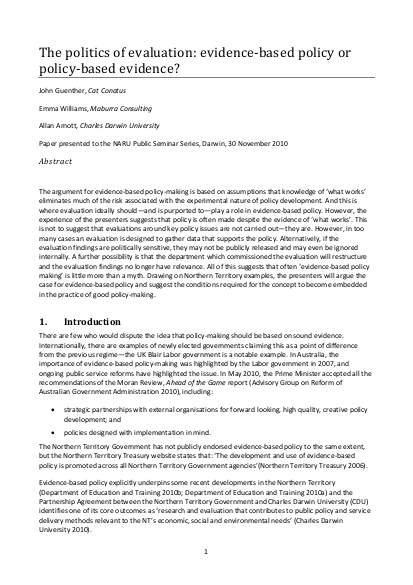
The argument for evidence-based policy-making is based on assumptions that knowledge of ‘what works’ eliminates much of the risk associated with the experimental nature of policy development. And this is where evaluation ideally should—and is purported to—play a role in evidence-based policy. However, the experience of the presenters suggests that policy is often made despite the evidence of ‘what works’. This is not to suggest that evaluations around key policy issues are not carried out—they are. However, in too many cases an evaluation is designed to gather data that supports the policy. Alternatively, if the evaluation findings are politically sensitive, they may not be publicly released and may even be ignored internally. A further possibility is that the department which commissioned the evaluation will restructure and the evaluation findings no longer have relevance. All of this suggests that often ‘evidence-based policy making’ is little more than a myth. Drawing on Northern Territory examples, the presenters will argue the case for evidence-based policy and suggest the conditions required for the concept to become embedded in the practice of good policy-making.